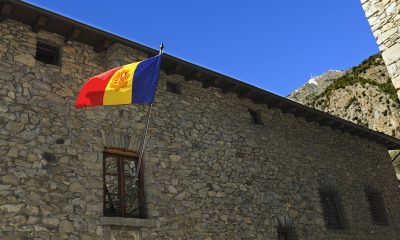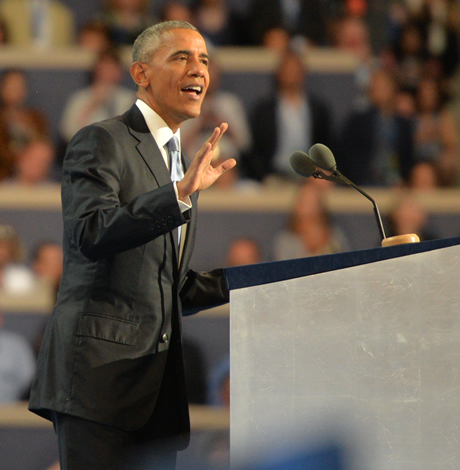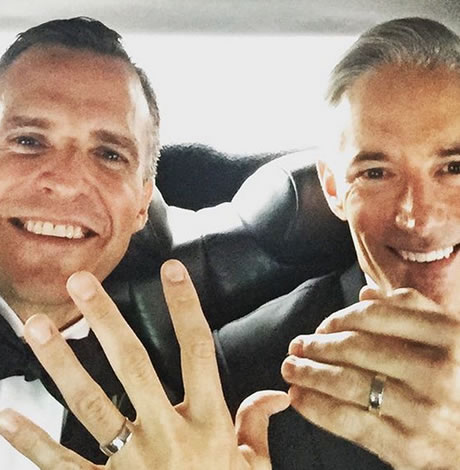Europe
Andorran prime minister comes out as gay
Xavier Espot Zamora spoke with country’s public broadcaster
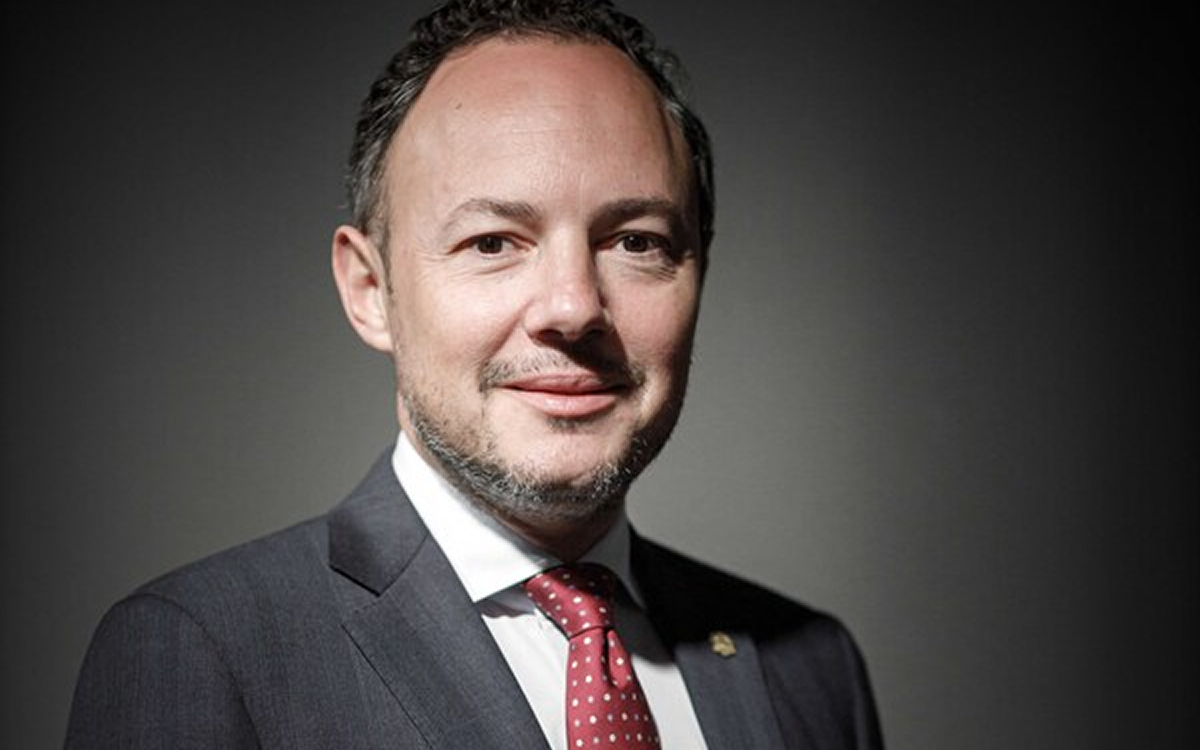
Andorran Prime Minister Xavier Espot Zamora has come out as gay.
“I’m gay. I’ve never hid it,” he said during an interview with Radio and Television of Andorra, the country’s public broadcaster, on Monday. “Now, if I’m not asked I don’t have to say it, in the sense that it doesn’t define the entirety of who I am and even less my personal politics, but at the same time I think it shouldn’t be a problem to express it. And if this helps many children, young people or teenagers who are going through a difficult time see that in the end, regardless of their condition or sexual orientation, you can prosper in this country and reach the highest magistracy, then I am happy to express it.”
Andorra is a small country known for its ski areas that is nestled between Spain and France in the Pyrenees.
Espot has been prime minister since 2019. The country’s lawmakers in 2022 extended marriage rights to same-sex couples.
The prime minister is one of a handful of heads of state and government who are openly gay or lesbian.
Latvian President Edgars Rinkēvičs took office in July.
Luxembourgish Prime Minister Xavier Bettel has been in office since 2013, while Ana Brnabić became Serbia’s prime minister in 2017. Irish Prime Minister Leo Varadkar is openly gay.
Deputy Belgian Prime Minister Petra De Sutter is a transgender woman.
Then-Icelandic Prime Minister Jóhanna Sigurðardóttir in 2009 became the world’s first openly LGBTQ head of government.
Hungary
Upwards of 100K people march in Budapest Pride
Participants defined Hungarian government’s ban on public LGBTQ events
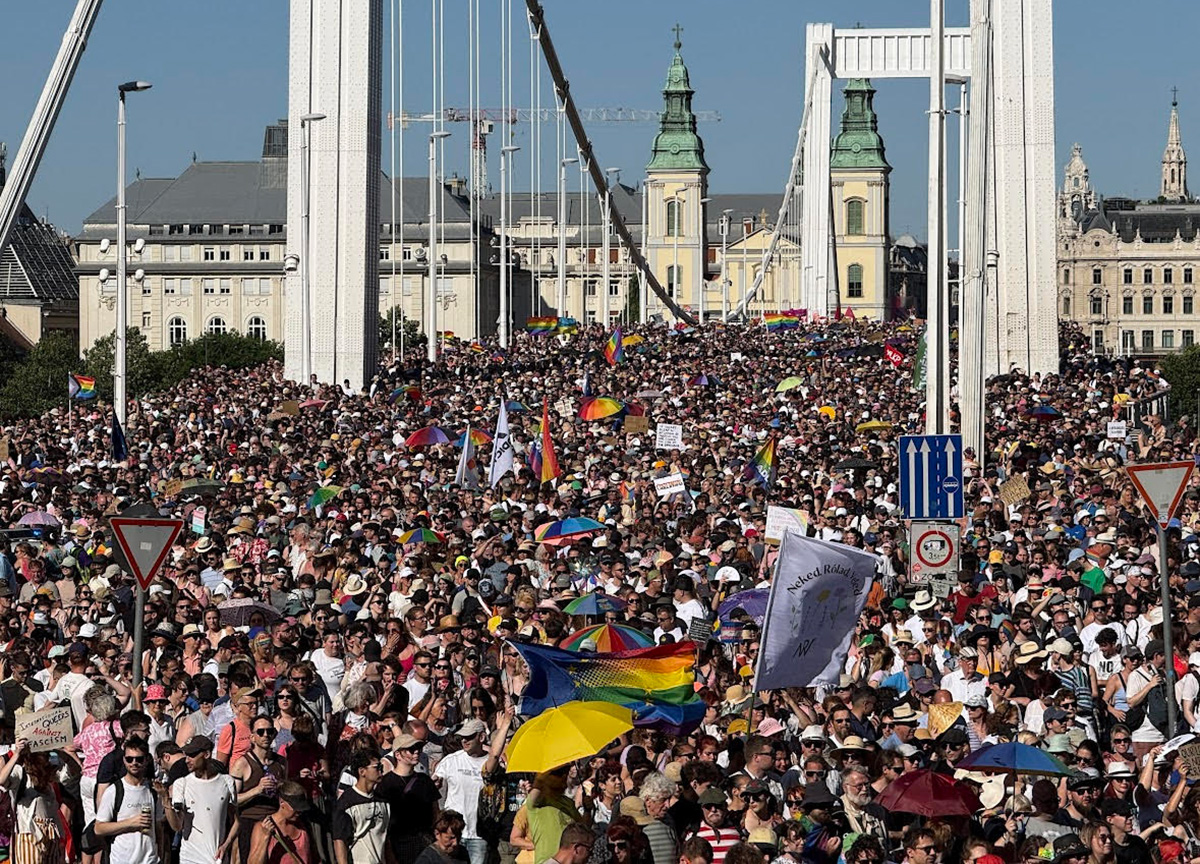
More than 100,000 people on Saturday defied the Hungarian government’s ban on public LGBTQ events and participated in the 30th annual Budapest Pride parade.
The New York Times published a picture that shows throngs of people marching on Budapest’s Erzsébet Bridge over the Danube River. Openly gay MEP Krzysztof Śmiszek, who was previously Poland’s deputy justice minister, is among the dozens of European lawmakers who participated in the march that began at Budapest City Hall.
The New York Times reported Hungarian police officers stood along the march, but they did not try to stop it. Śmiszek described the march to the Washington Blade as “beautiful and huge.”
“[It was] very peaceful and political,” he said.
Prime Minister Viktor Orbán and his Fidesz-KDNP coalition government have faced widespread criticism over its anti-LGBTQ crackdown.
Hungarian lawmakers in March passed a bill that bans Pride events and allow authorities to use facial recognition technology to identify those who participate in them. MPs in April amended the Hungarian constitution to ban public LGBTQ events.
Budapest Mayor Gergely Karácsony endorsed the march, even though Orbán’s government threatened to arrest him and fine participants.
“Today a country shows that no ruling party can tell it on what topic, for what cause it is allowed to march and why not,” said Budapest Pride President Viktória Radványi on Saturday in a Facebook post. “A country demonstrates that whoever will be in government can count on us: dedicated, persistent citizens intolerant to oppression, who will organize themselves and stand against tyranny with their heads held high.”
More than two dozen activists in D.C. who protested outside the Hungarian Embassy on Friday expressed their support for Budapest Pride.
(Washington Blade video by Michael K. Lavers)
District of Columbia
Activists protest outside Hungarian Embassy in DC
Budapest Pride scheduled to take place Saturday, despite ban

More than two dozen activists gathered in front of the Hungarian Embassy in D.C. on Friday to protest the country’s ban on Budapest Pride and other LGBTQ-specific events.
Amnesty International USA Executive Director Paul O’Brien read a letter that Dávid Vig, executive director of Amnesty International Hungary, wrote.
“For 30 years Budapest Pride has been a celebration of hope, courage, and love,” said Vig in the letter that O’Brien read. “Each march through the streets of Budapest has been a powerful testament to the resilience of those who dare to demand equality, but a new law threatens to erase Pride and silence everyone who demands equal rights for LGBTI people.”
“The Hungarian government’s relentless campaign against LGBTI rights represents a worrying trend that can spread normalizing division and hatred,” added Vig. “Thank you for standing with us when we refuse to be intimidated.”
Council for Global Equality Chair Mark Bromley and two of his colleagues — Stephen Leonelli and Keifer Buckingham — also spoke. Health GAP Executive Director Asia Russell and Chloe Schwenke, a political appointee in the Obama-Biden administration who worked for the U.S. Agency for International Development, and Planned Parenthood staffers are among those who attended the protest.
(Washington Blade video by Michael K. Lavers)
Hungarian lawmakers in March passed a bill that bans Pride events and allow authorities to use facial recognition technology to identify those who participate in them. MPs in April amended the Hungarian constitution to ban public LGBTQ events.
Budapest Pride is scheduled to take place on Saturday, despite the ban. Hundreds of European lawmakers are expected to participate.
“Sending strength to the patriotic Hungarians marching tomorrow to advance human dignity and fundamental rights in a country they love,” said David Pressman, the gay former U.S. Ambassador to Hungary, on Friday on social media.
Sending strength to the patriotic Hungarians marching tomorrow to advance human dignity and fundamental rights in a country they love. Szabadság és szerelem. My past remarks on Budapest Pride: https://t.co/y1QhA9QouA
— David Pressman (@AmbPressman) June 27, 2025
Spain
Barcelona bids to host WorldPride in 2030
Activists from Spanish city traveled to D.C. this month
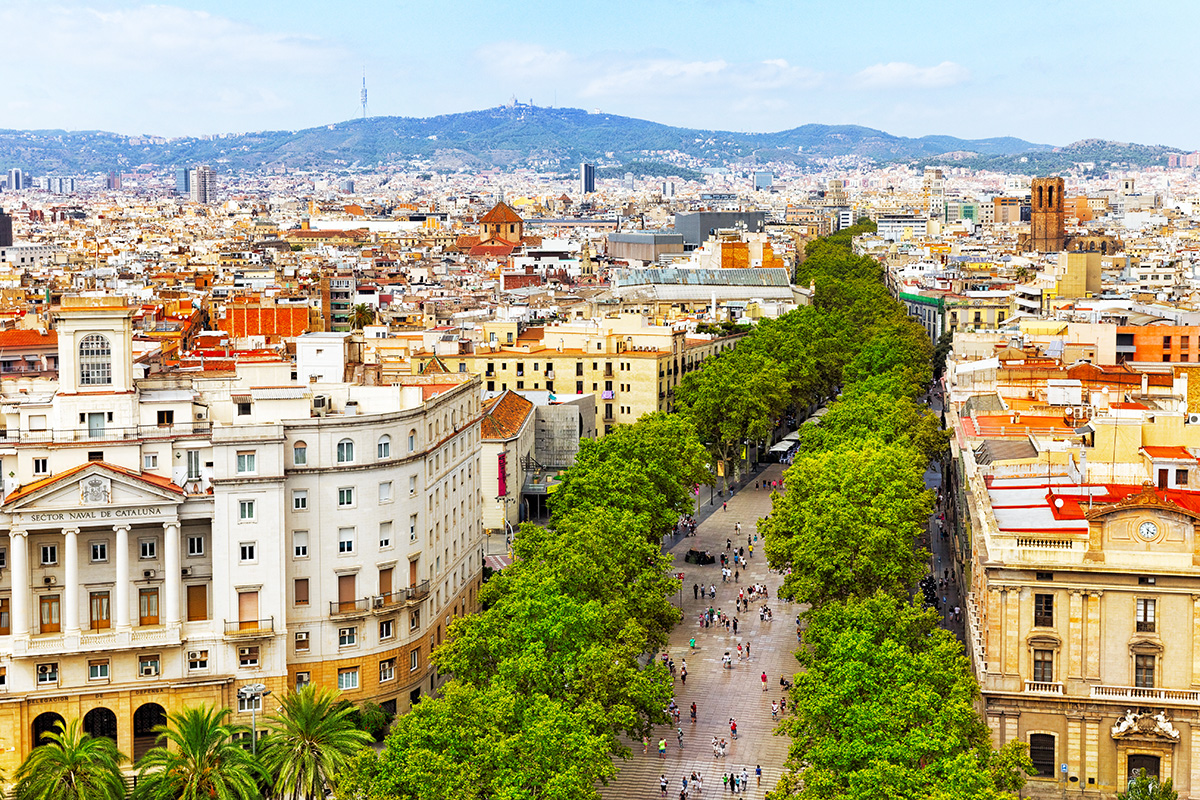
A group of activists from Barcelona traveled to D.C. earlier this month to promote their city’s bid to host WorldPride in 2030.
Pride Barcelona Vice President Maria Giralt, WorldPride Barcelona 2030 Project Manager Andoni Ibáñez, and Pride Barcelona’s Roger Presseguer on June 4 presented the city’s bid at a José Andrés-catered event at the Spanish Cultural Center in Northwest Washington.
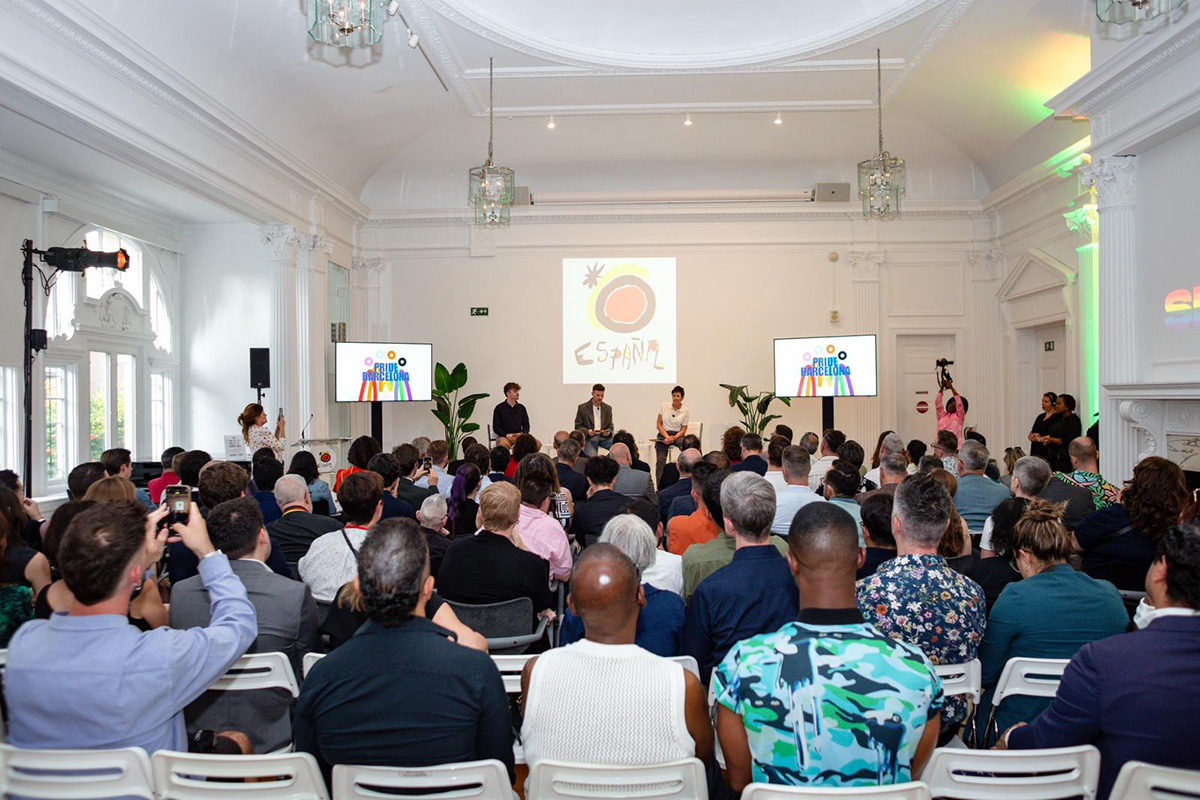
Catalonia LGBTI+ Public Policies General Director Alberto Lacasta, Barcelona City Commissioner Javier Rodríguez, and Barcelona Turisme Director Rosa Bada traveled to D.C. with the activists. Giralt, Ibáñez, and Presseguer visited the Washington Blade’s office on June 6.
“We intended to transmit the spirit of our candidacy,” said Giralt.
Giralt noted 39 LGBTQ groups in Barcelona and throughout Catalonia support the bid. The Catalonian government and Spain’s Tourism Institute, known as Turespaña, have also backed it.
“Spain and the ministry have helped us a lot,” said Giralt.
Madrid, the Spanish capital, hosted WorldPride in 2017. The activists’ trip to D.C. coincided with WorldPride 2025 that took place in the nation’s capital.
Spanish Sen. Carla Antonelli, who is transgender, is among those who participated in the WorldPride 2025 Human Rights Conference. Turespaña also had a booth at the Capital Pride Festival.
Next year’s WorldPride will take place in Amsterdam, while Cape Town will host WorldPride 2028. Montreal, London, and Bangkok are the three other cities that have bid to host WorldPride 2030.
InterPride, the organization that coordinates WorldPride events, will announce the winning bid in 2026.
“What better occasion than to come to Washington to present (the bid) and to also connect with other countries around the world,” said Giralt. “This approval is very important, especially at this time when there is a wave, a drift, toward the extreme right, and we believe it is very important for all the world’s greats to be present, to be clear that the fight. The resistance must continue.”
Spain’s first LGBTQ rights march took place in Barcelona on June 26, 1977, less than two years after long-time dictator Gen. Francisco Franco died. Spain is now one of the world’s most LGBTQ-friendly countries.
“What we’re trying to do from Barcelona is to recover a little of this struggle’s origins,” Giralt told the Blade.
‘A historic moment to be in Washington’
WorldPride 2025 took place less than five months after the Trump-Vance administration took office.
Egale Canada, one of Canada’s largest LGBTQ advocacy organizations, in February announced its members would not participate in WorldPride or any other event in the U.S. because of the White House’s policies. Equality Australia in April issued a travel advisory for transgender and nonbinary people who plan to visit the U.S. in response to President Donald Trump’s executive order that directed the federal government to recognize only “two genders, male and female” and banned the State Department from issuing passports with “X” gender markers.
Phyll Opoku-Gyimah, the co-founder of UK Black Pride known as Lady Phyll, spoke at the WorldPride 2025 Human Rights Conference’s opening plenary virtually after the U.S. revoked her eligibility to enter the country without a visa because she had traveled to Cuba earlier this year.
The U.S. Customs and Border Protection website notes the State Department on Jan. 12, 2021, designated Cuba as a state sponsor of terrorism. The CBP website notes that with “limited exceptions, a traveler who is found to have visited Cuba on or after this date is not eligible for travel under the Visa Waiver Program (VWP) using an Electronic System for Travel Authorization (ESTA) and must apply for a visa to travel to the United States.”
Ibáñez told the Blade that he, Giralt, and Presseguer felt it was important for them to travel to the U.S. for WorldPride.
“We feel that it was a historic moment to be in Washington celebrating and fighting for our rights within the context of Trump,” said Ibáñez.
“It was very important for us to come here and share our values and claim next to your (White House) and say, hey, we’re here and we’re never going to go away,” added Ibáñez.
-

 U.S. Supreme Court3 days ago
U.S. Supreme Court3 days agoSupreme Court to consider bans on trans athletes in school sports
-

 Out & About3 days ago
Out & About3 days agoCelebrate the Fourth of July the gay way!
-

 Virginia3 days ago
Virginia3 days agoVa. court allows conversion therapy despite law banning it
-

 Maryland5 days ago
Maryland5 days agoLGBTQ suicide prevention hotline option is going away. Here’s where else to go in Md.

